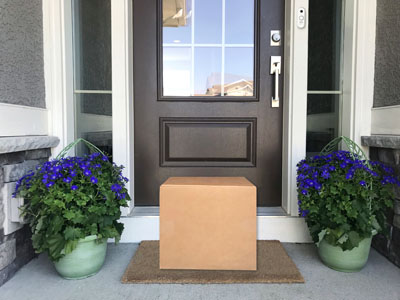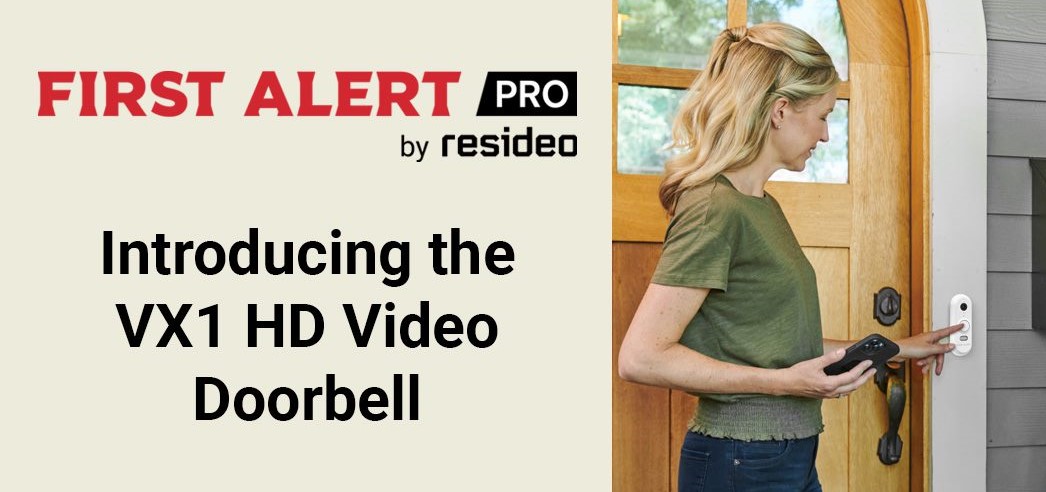Have you been thinking about adding or upgrading your home security system by adding a video doorbell?
If so, there is good news for the Raleigh/Durham area: Secur-Tek, Inc. now has the new VX1 HD Video Doorbell from First Alert!
With this new model, you can select and receive the alerts you want — like when there is a package delivery, animals, people, and/or vehicles — from your Total Connect home security system, right to your phone or PC.
In addition, this doorbell features:
- A durable design that can withstand a variety of extreme weather conditions – including temperature, (-40 to 122 degrees Fahrenheit), humidity, dust, moisture, and ultraviolet rays.
- Innovative AI that can reduce false alarms by detecting and differentiating between people, packages, vehicles, and animals. Homeowners can customize notifications and detection areas based on their needs.
- Deterrence Features, including siren & spotlight LED.
- Night vision Modes: IR (infrared light) and color night vision
- Field of view options: Tall, Wide, and Full.
- High Resolution: 5MP sensor, 2592×1944 pixels max.
- Better Wi-Fi connection with Dual-band 2.4 GHz and 5Ghz
- Anytime, anywhere programming, troubleshooting, account creation, and more via web, IOS, and Android devices.
If you are located in our service area and would like to learn more, contact Secur-Tek at 919-387-1800 or fill out the form below.

Secur-Tek, Inc. is locally owned and operated in Apex, NC, offering home and business security, monitoring, controlled access, automation, audio, and central vacuum systems. We serve Apex, Cary, Fuquay-Varina, Chapel Hill, Clayton, Garner, Holly Springs, Durham, Raleigh, Morrisville, and Pittsboro in North Carolina.

